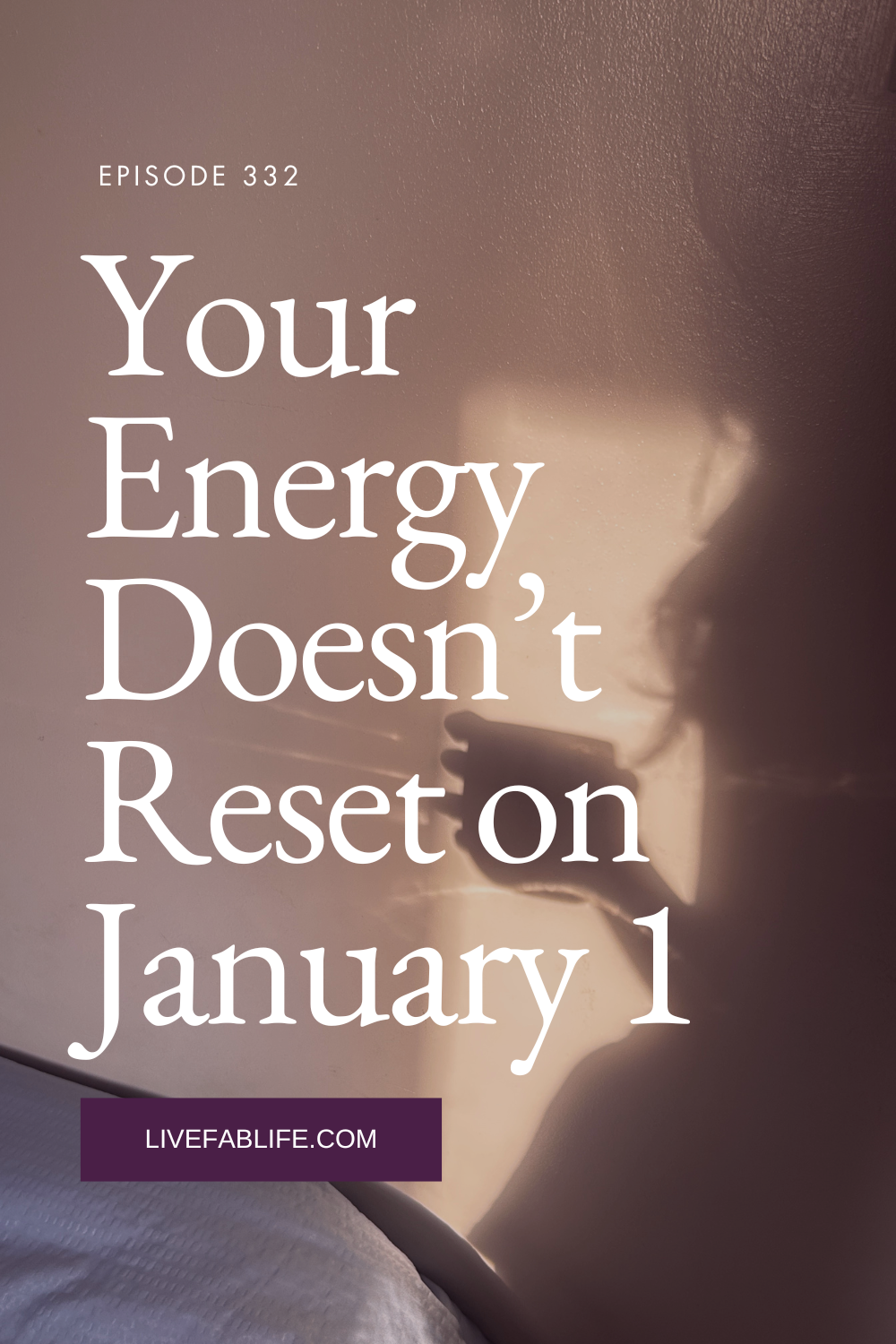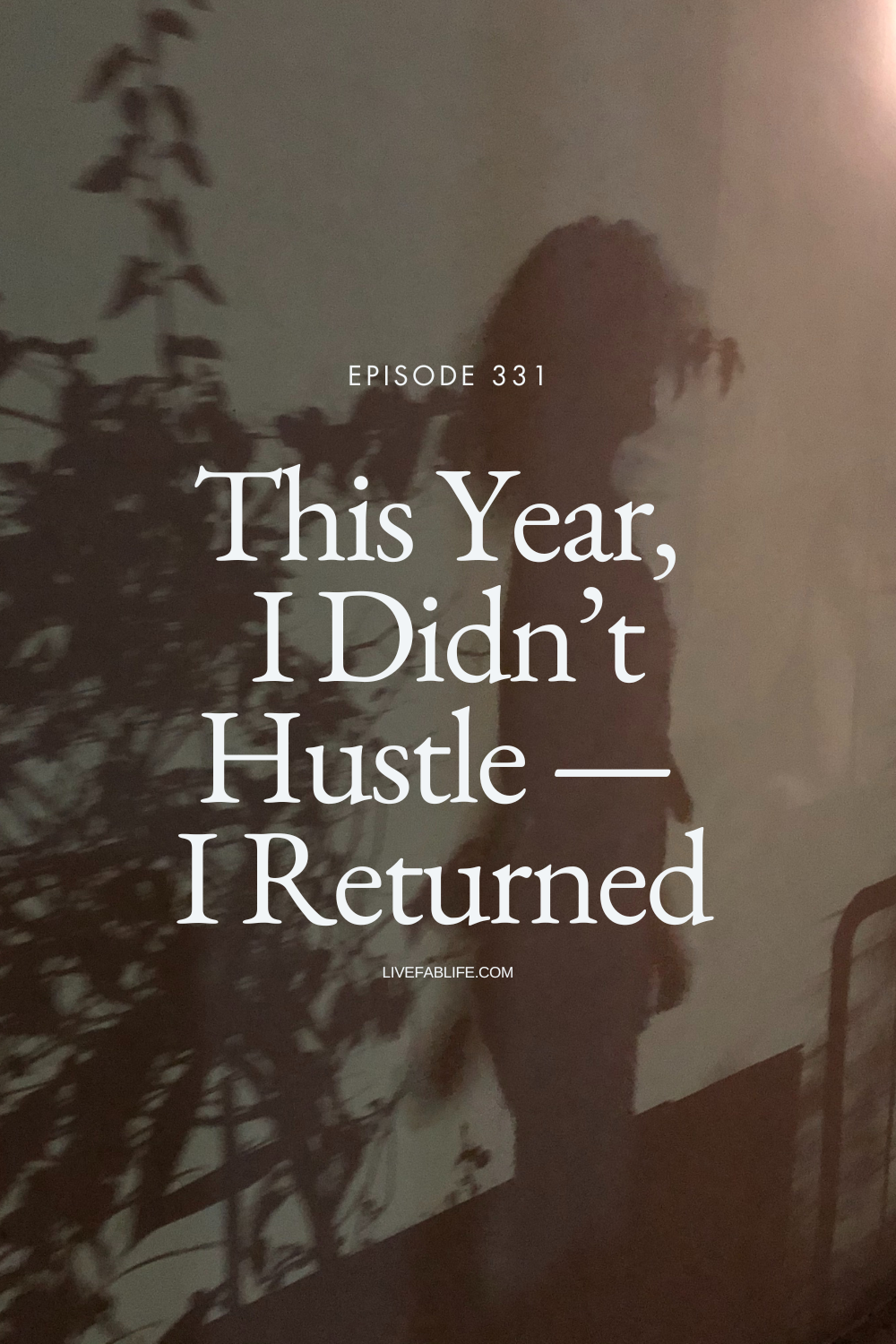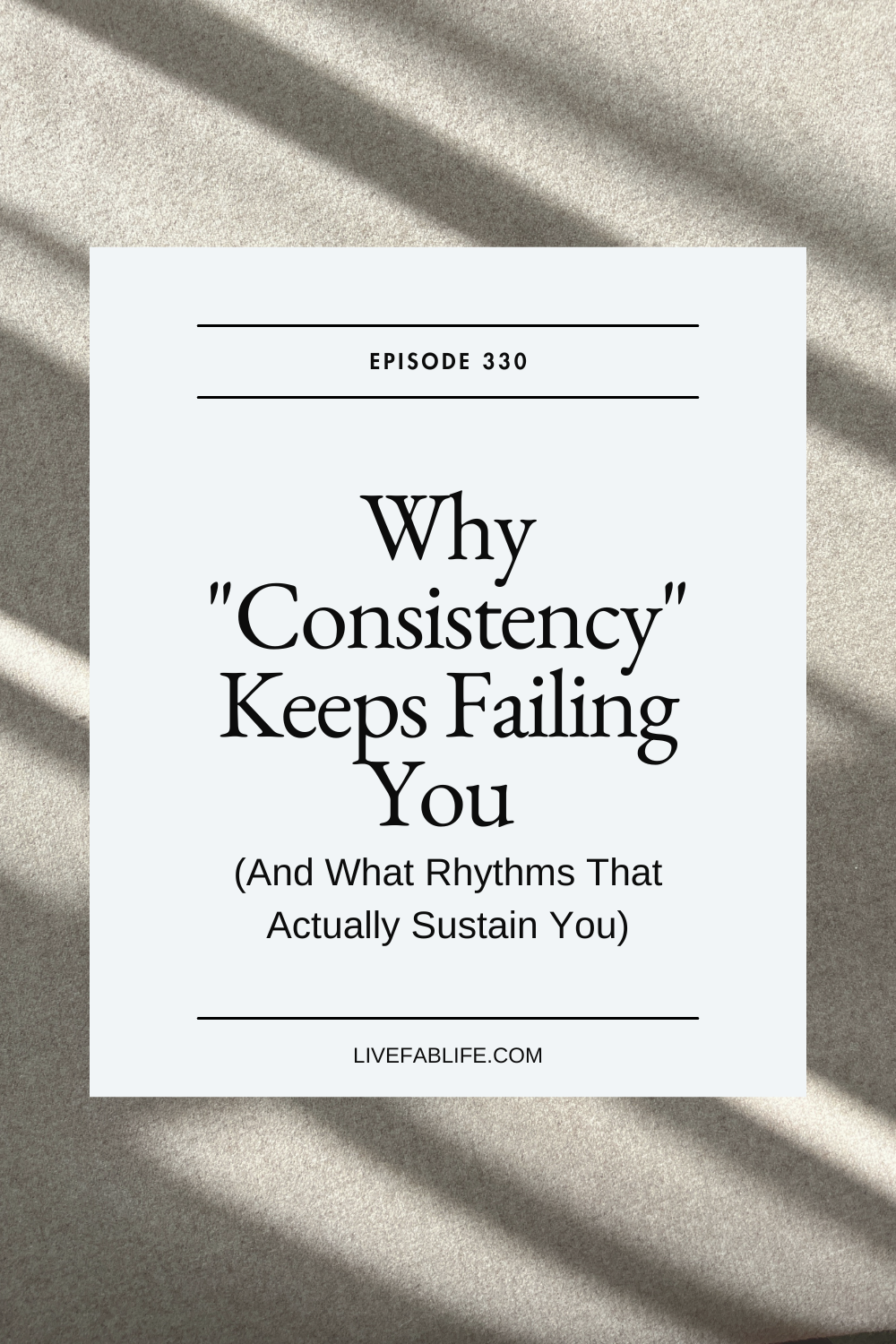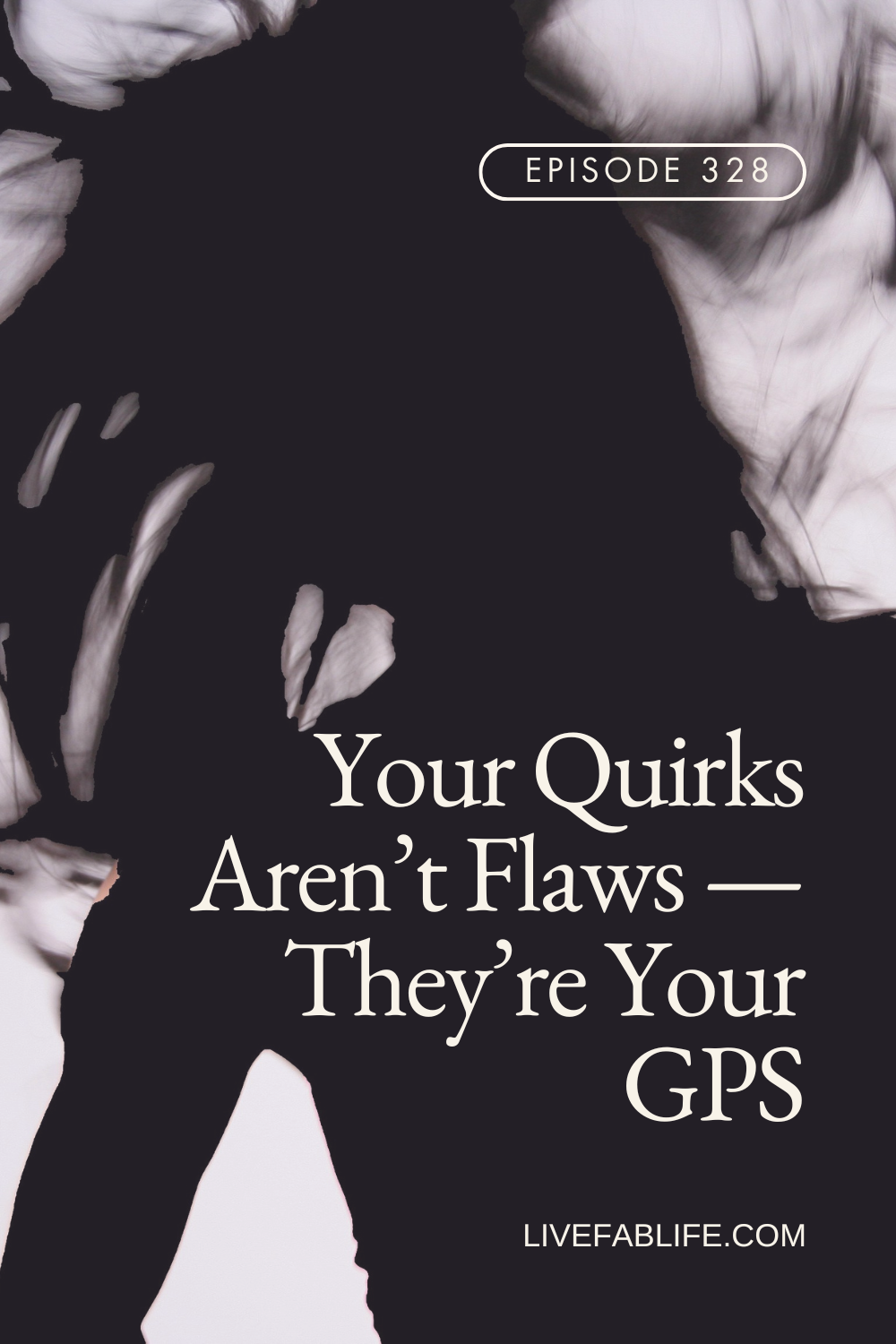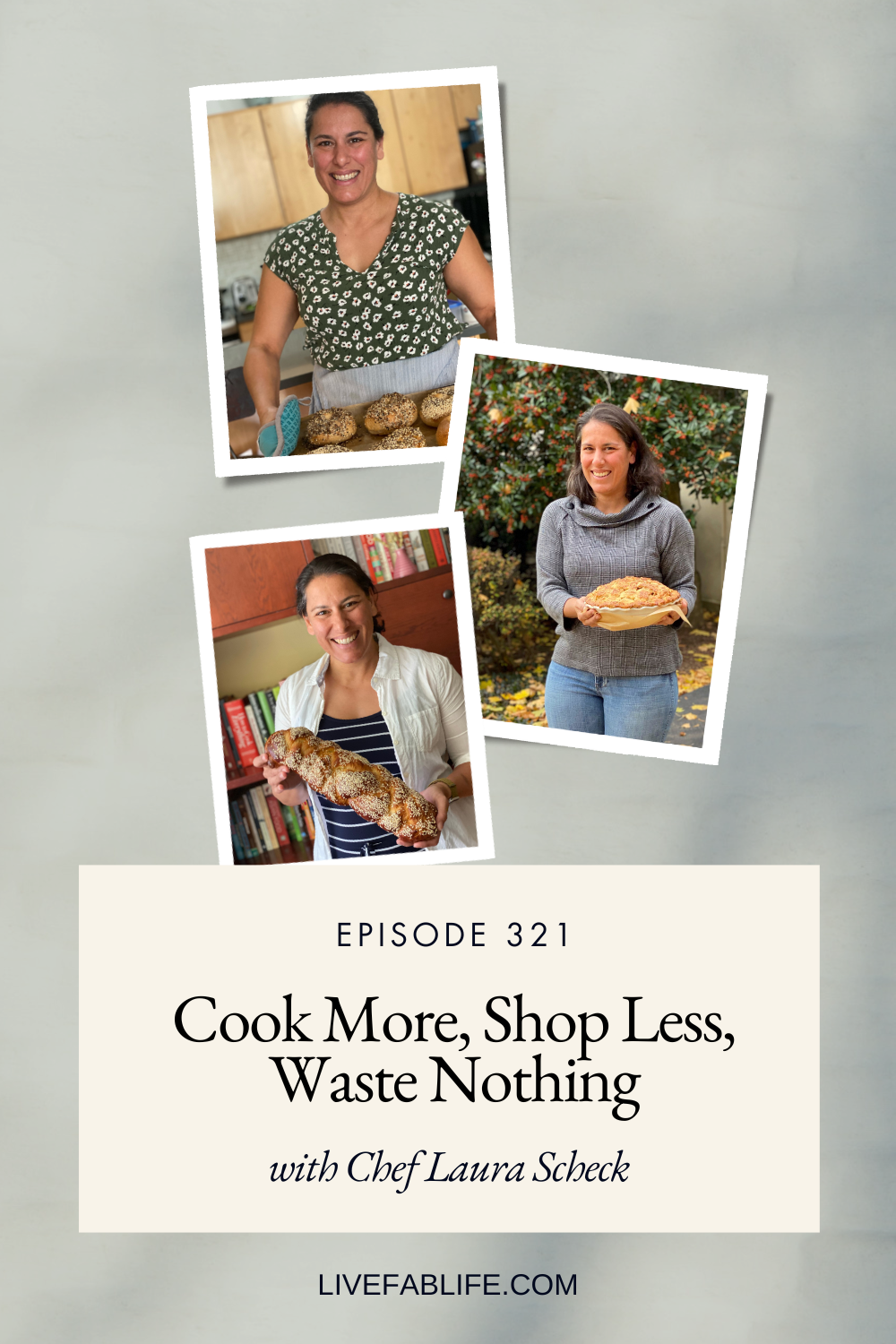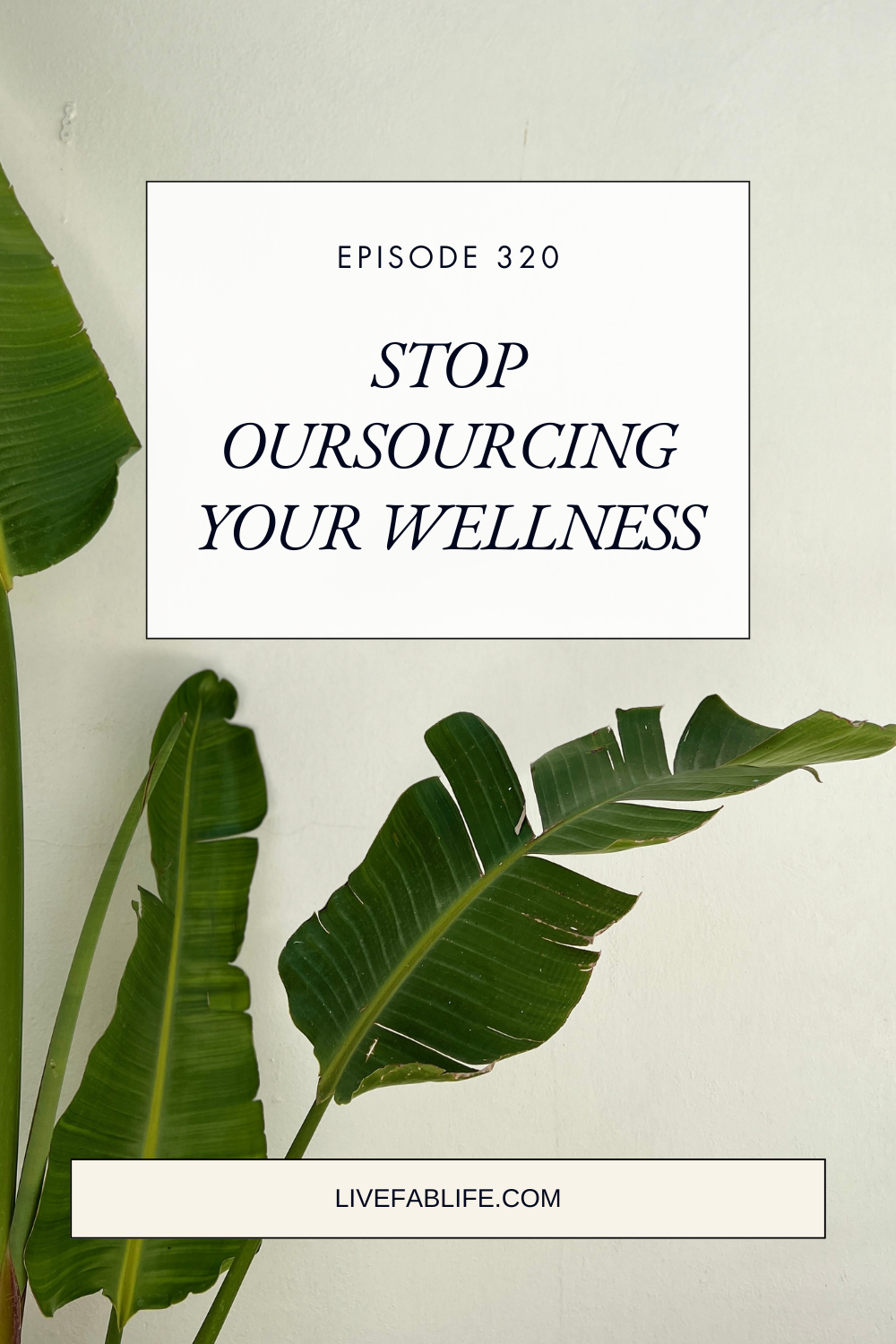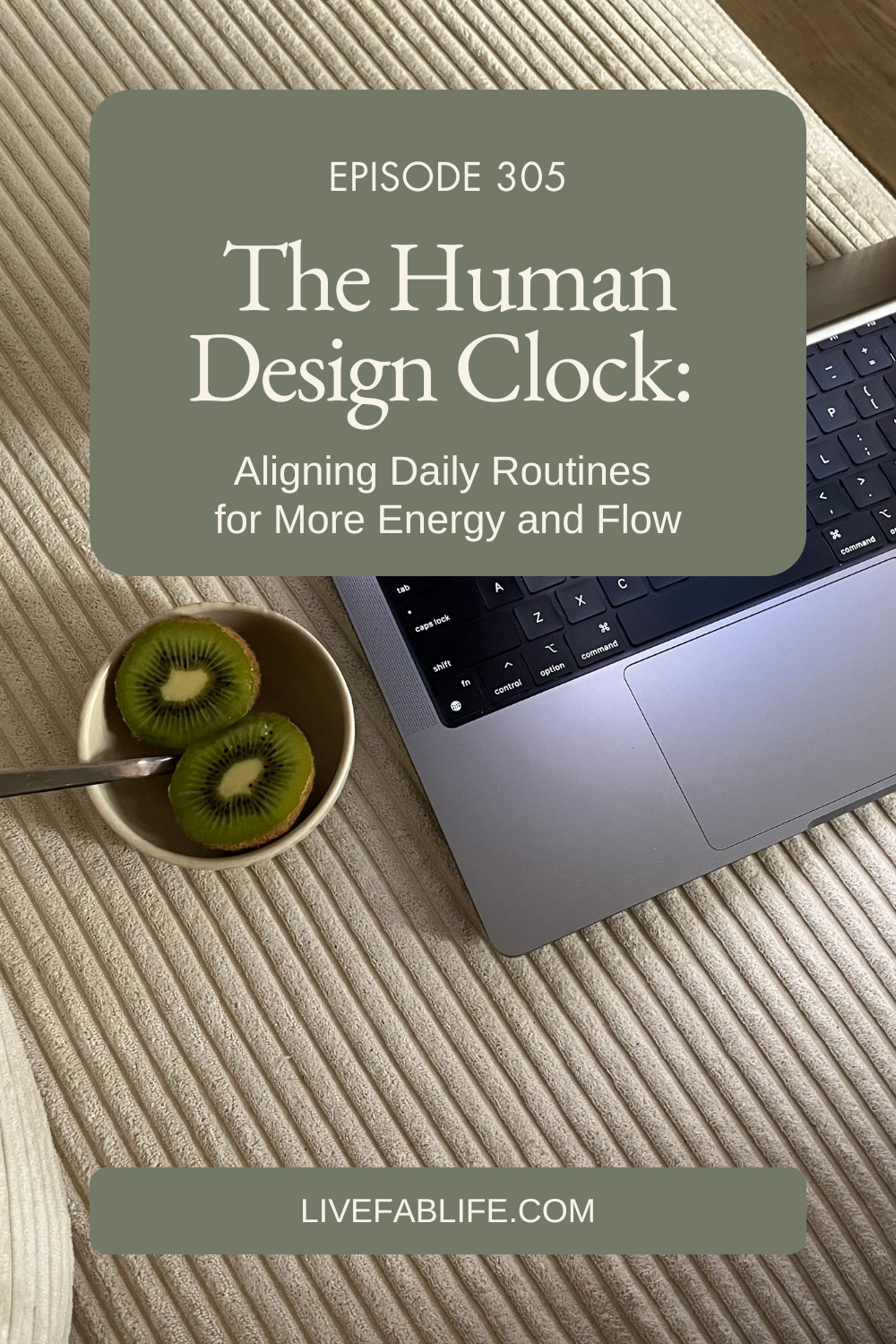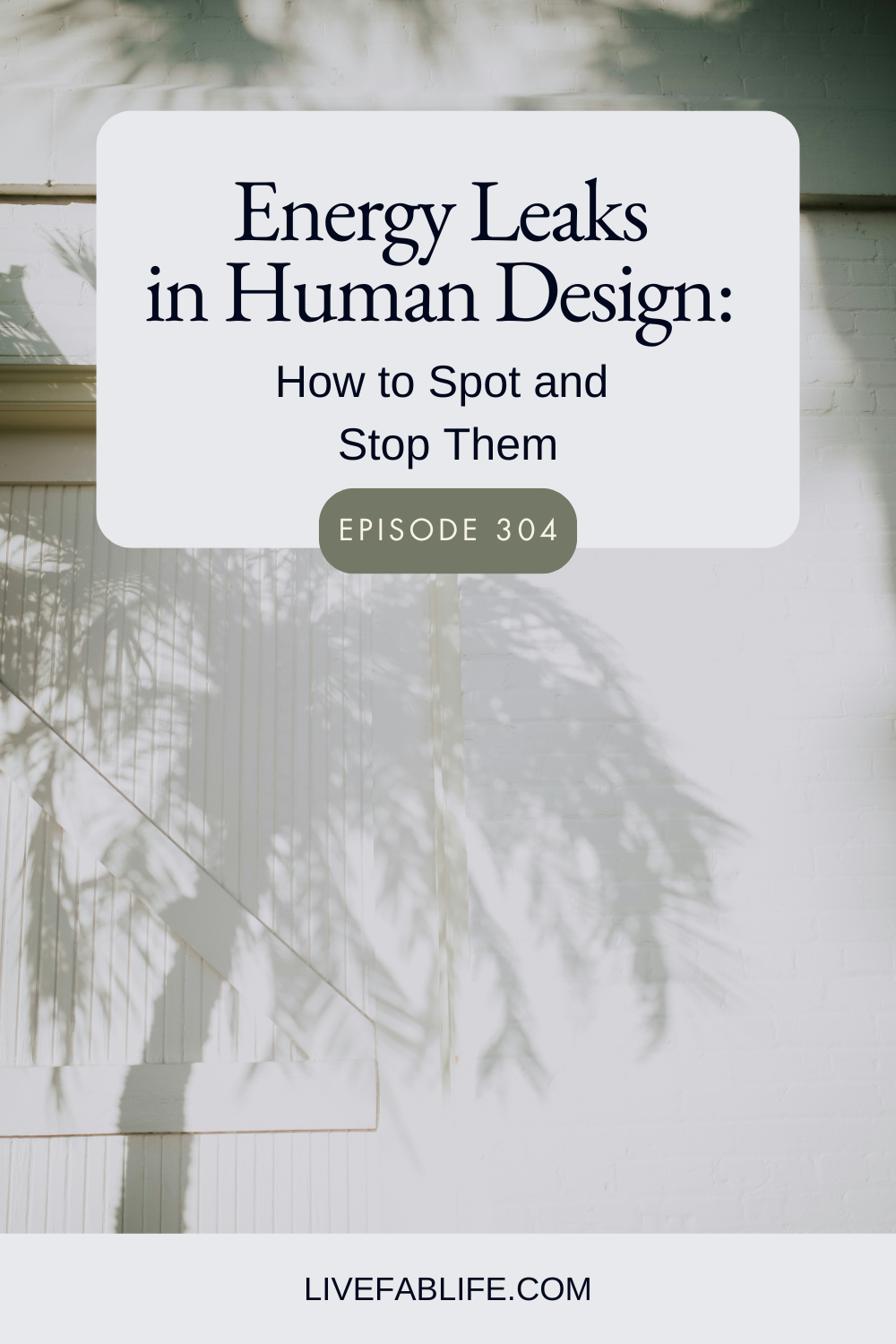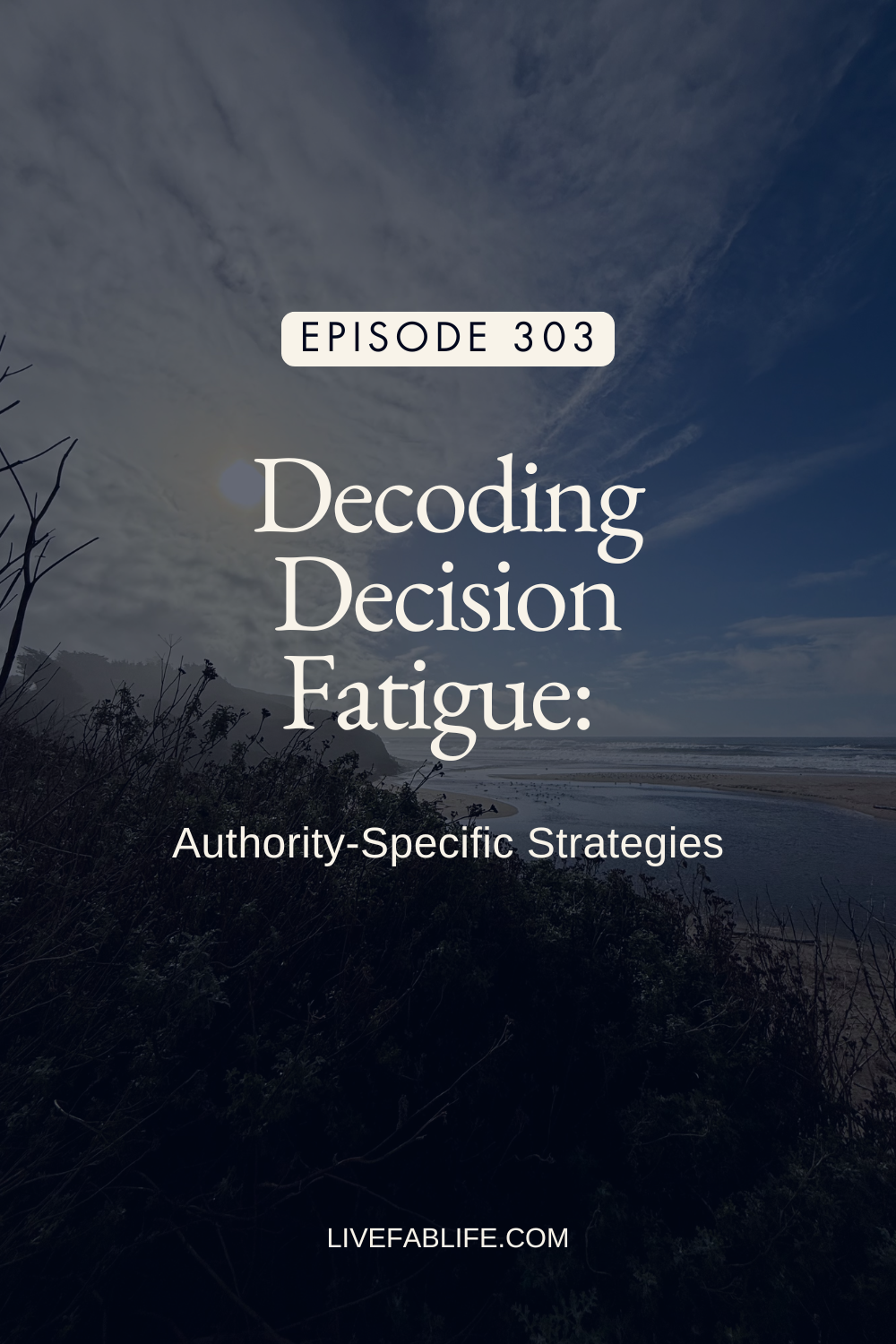Episode 213: The Ripple Effect of Kindness and the Self-Compassion Challenge with Heidi Jones
I believe that Human Design teaches us self-love and ultimately, self-trust. And when we’re able to love and trust ourselves, we’re able to embrace our uniqueness and lean into our authenticity. As a byproduct, we can naturally fall into a life of freedom, good health, and empowerment.
Joining me to explore one path towards this is Heidi Jones.
Heidi is a health and mindset coach based in Dubai. Using curiosity and self-leadership, she helps women take action to balance their career and their health so they can achieve their goals.
You’ll hear Heidi and I discuss:
Her journey from the UK to Dubai and how she pivoted her career from teaching to coaching
How she became an ultra-marathon runner
Her Be Kind to Yourself Challenge and how it came about (the next round of her free Be Kind To Yourself Challenge begins on March 14, 2022!)
Listen to the Episode:
Mentioned in the Episode:
FREE WORKBOOK: Your Human Design, Discovered
Connect with Heidi Jones:
Share the Episode:
“I got over this sense that you need to be skinny, or have abs to be happy. All of that went out the window when I realized that the thing that changed my life the most is being able to treat myself as if I was my own best friend, actually be kind to myself. That’s where my sense of empowerment comes from and I want to pass this on to as many women as possible.”
Read the Transcript:
Naomi Nakamura: Hello there my friends. And welcome back to the Live FAB Podcast. I'm your host Naomi Nakamura, and I'm excited today to be joined by my friend, Heidi Jones.
Heidi is a health and mindset coach based in Dubai, and she helps women achieve their goals and take action to balance their career and their health. Using her expertise, Heidi pushes her clients to open up, not an easy thing to do, to lean into curiosity, one of my favorite words, and to find out what's possible.
She delves into self leadership, a big topic here on this show, vision and goals, career pivoting, that's pretty big, self-compassion, and cultivating a positive mindset.
Heidi and I belonged to a mastermind group, we meet a couple of times every month. A few months ago she shared about this challenge that she was having centered around self-compassion and it really peaks my curiosity because I think that is something that we could all lean more into. The words that we say to ourselves matter. That's what we're talking about today on this show.
First, Heidi shares with us how she went from living in the UK to living in Dubai, how she started off in one career, what was her trajectory into pivoting her own career to where she is now, and what she's doing now. We share a little bit of our running stories, and we also spend a lot of time talking about self-compassion and the role that plays in our wellbeing and the ripple effect it has through all the other parts of our lives.
Now, Heidi's next challenge of the Be Kind To Yourself Challenge, starts in just a couple of days. If you're listening to this episode in real time, it starts on March 14th. You can go and visit her website or find her on Instagram to find out all the information about it and get yourself registered. It's a free challenge, and is no risk involved, we have nothing to lose. I will have all those links in the show notes for this episode which will be on my website @livefablife.com/213 for episode 213, and with that, let's get to the show. Hello Heidi, welcome to the show.
Heidi Jones: Thank you so much for having me Naomi.
Naomi Nakamura: I am excited for us to have this conversation. We met probably a little over a year ago in a group [crosstalk 00:02:49].
Heidi Jones: Yeah. Time has flown.
Naomi Nakamura: Time has flown. I love our little group it's so intimate. I so enjoy learning about everyone's businesses and their offerings. Well, before we get into what we're talking about today, why don't you introduce yourself and tell us a little bit more about you, and what it is that you do?
Heidi Jones: Oh, thank you so much Naomi. You're right, when we have those group sessions, we get to know each other on such an intimate level, don't we? We get to learn all about our passions and insights. And every month, every couple of sessions a month, I just love hearing what's going on with you and what input you put into the group. It's always such nuggets of gold, it's like, that was such a good insight, thank Naomi.
Naomi Nakamura: I feel the same way from hearing from you and everyone else in our group.
Heidi Jones: Yeah, I love it. A little bit about me, well, I actually live in Dubai. I'm a British expert and I've been living in Dubai for 11 years, moving into my 12th year.
Naomi Nakamura: Wow.
Heidi Jones: I was one of those expats that said yeah, I'm going to move for two years, and I'm going to go back and I'm still here. My whole life had a transformation after those first couple of years and it's led me to where I am now. I am a mindset coach. I would say health life coach [crosstalk 00:04:08].
Naomi Nakamura: It all encompasses.
Heidi Jones: They really are, you know what I mean? It all connects, doesn't it?
Naomi Nakamura: It does.
Heidi Jones: When you come to coaching, you're meant to have a title. I just feel like I'm a coach that really empowers women, supports women with their goals, and that can be personal and professional goals. Helping them navigate through the challenges, the steps, the milestones that they want to reach in a way that really helps them to take responsibility for their lives, to own their choices, and to really look forward to the future. Fill in with some hope and help them step into that mindset of curiosity so they can go and find out what's possible for them. That's what I do, which I love.
Naomi Nakamura: I love that so much. Well, there's so much great things you said there. A couple of days ago, somebody asked me if I do business coaching and I don't. However, just like we talk about body and mind and emotions are all connected, so much of who you are goes into your work, whether it be your own business, or if you work for someone else, we really can't separate all of these different parts of our lives. I think, with the generation that I am we grew up being told we had to keep all these things separate and really it's not who we are as humans.
Heidi Jones: Absolutely.
Naomi Nakamura: That whole helping women build this awareness and curiosity it's such a beautiful process. Well, I have a lot of questions, but how did you end up in Dubai, and then what led you to do this work?
Heidi Jones: Well, I ended up in Dubai when I was living in the middle of England, and I was applying for some jobs because I was in a position where I didn't necessarily hate my job, but I wasn't liking where it was going, maybe the environment, I needed a change. I was applying for these jobs, but from a place of desperation, and it was one day I got a rejection letter from a job that I didn't even want, in a place that I didn't even want to live in. I just remember opening this letter seeing the rejection and being like, what are you doing? Why are you even applying for these things if you don't want it? I remember just thinking, right, something has to change.
I think I've always been someone who's quite a risk taker. I'm not really scared of bold steps. I'm actually someone who has found it harder to take the smaller steps, so a bold step I'll do, and then I deal with the consequences later, and sometimes not in a good way. So, this is where I've learned to raise myself in a little bit and be a little bit more conscientious. But back then there was none of that, I was just like, opened up the newspaper, such a long time ago, and looked at jobs that were international. I was a teacher so you had a newspaper called Tes, and it had all the jobs outlined. I just heard about Dubai, I applied for lots of different countries and the Dubai job came up first. They're the ones that gave me an interview and offered me the job.
I was just like, I'm having it, I'm taking it, I'm going for it, never visited it before I was just like, I'm going to do it. Didn't know anything really about the country at all, very naive, which I think was in a way a good thing for me because then I just landed and just dealt with it as I went. I knew that if I didn't like it, I could always go back. I would rather take that step and see what happened rather than keep going in this spiral of not feeling good enough for the jobs that were around me, even though I knew there was so much more to life. There was a real fire in my belly to go out and prove that there was something I could do.
Then I was happy in my job for about five years and then I just had this same feeling come up again. It was the same feeling that I had when I was in England, and I was like, is this all there is? Really, is this it? Because I'm meant to be at one of the heights of my career and I was getting bored or frustrated, and I was feeling a little bit down, and I was just like, I don't understand what's happening? I actually then reached out to a coach. I had some coaching, which was the first time I did it and I learned a lot around the coaching mindset and taking that responsibility to create the changes that you want in your life. The first thing to do was to ask yourself, well, what actually do you want? Because I was full of all of that, I don't want this, I don't want that, I hate this, but actually what did I want? Was where I was stuck.
Having some time with a coach to explore what it was I wanted, I was then able to take some practical steps, and part of that was this sense of freedom, sense of adventure. I still have that today. Being able to take myself out of a job that had a boss and had a career ladder, and had the restricted hours, I was able to then create something that meant a lot more to me that have given me this purpose and passion in life. I did take that bold risk again of thinking, I need something different, I'm just going to take that massive step and left my job.
However, moving into coaching for me was quite a really good transition, it wasn't as hard as maybe it is for some people because when you've got an education background you're used to talking to people, you've built those listening skills, you can stand up in front of an audience or a room and deliver, and it's a natural kind of, I don't know whether it's a trait or characteristic in teachers where you want to help people. Moving into coaching, it was a smooth ambition and I leveraged on those strengths and skillsets and built up a business from the ground up. That was in 2016. I've moved my business now forward to 2022 in a way that really works for me, but also the women that I work with as well.
Naomi Nakamura: Wow. I can definitely see why you are so the perfect person to lead people through what we're talking about today because if there is anything more self-compassionate it is taking bold moves. Well, first of all, it's recognizing that what you're doing isn't satisfying or fulfilling you anymore.
Heidi Jones: Yeah. Absolutely.
Naomi Nakamura: I mean, I don't know what bolder you can make than picking up and moving to another country that you've never visited before. I feel like Dubai is a hotspot now but probably back then it wasn't.
Heidi Jones: No.
Naomi Nakamura: It was really frontier territory.
Heidi Jones: It was, and now I can see how big Dubai is. At the time it wasn't like you said, people had heard of it but yeah, it's very massively over these last 12 years. I think something I've always naturally been able to have an expectation that I can achieve more if I know what I'm going out to do. Prior to this coaching journey that I've been on, this direction I've taken on my life, I would do it in a much harsher way though. I would beat myself up a lot, and that was something I had just took from early childhood, it was something I just developed a habit in. It was very habitual to see myself in a negative point of view. And it would really have this knock-on effect where I would actually have quite low times and I just feel like I wasn't enough or I wasn't good enough, that was that deep-rooted belief.
It wasn't until I did coaching though that I was able to turn that around. Even though during that six year process of making a huge transformational move, then working in a career that I was good at, I still had a lot of negative self-talk. That was what was holding me back a lot from this sense of adventure freedom because I was being so mean to myself. Once I was able to reframe or change the story with that belief because I started to learn more about cultivating positivity, that was when I saw the best transformation in my life.
I've got over this sense of you need to be skinny, or you need to have abs or you need to do this to be happy. All of that went out the window when I realized actually the thing that has changed my life the most is being able to treat myself as if I was my own best friend, actually be kind to myself. That is where this sense of empowerment come from. I just want to pass that on to as many women as possible, because I've learned since then that I'm not in the off what the most common belief that women hold and it's come from all different sources.
Naomi Nakamura: I'm nodding my head because I think our trajectory to coaching has been very similar and then that whole transition. I don't know if this has been your experience but for me a lot of it came from seeing where my clients were at, and then seeing myself mirrored in them, and then being able to see that other perspective helped me to see how I can be kinder to myself. All that being said, one of the things you shared in our mastermind group is that you were posting a self-compassion challenge and that really just piqued my curiosity. It's been a while since you mentioned that, so was this the origin of how that came to be?
Heidi Jones: Yeah, absolutely. Working with these women for such a long period of time now you're always trying to engage in a way that resonates because that's the best way to help, isn't it?
Naomi Nakamura: Mm-hmm (affirmative).
Heidi Jones: Later down the line. You need to be able to resonate with the people that are following you on social media or reading your emails. What I had learned through the coaching process, you're coaching hundreds of women over these past six years, was that it all stemmed down to just not feeling good enough. Or this sense of failure, or imposter syndrome, that was just a lot of this same topics were coming up and they still do. From there, I was like I think we just need a starting point, that if you are kinder to yourself you're going to start to see a lot more progress than setting a goal and focusing on just the action.
Naomi Nakamura: Yeah.
Heidi Jones: Because I think health compassion's their first goal setting actually becomes more meaningful, purposeful, and you'll enjoy that process, and very much about process rather than outcome.
Naomi Nakamura: Well, I think a lot of this feeling of lack comes from holding ourselves up to someone else's standard; whether it be your mother's, or an older sibling, or a magazine you read, or just what the world tells you you're "supposed to be, or you should be", and that's how we get to feel like we're not good. That's how we start to really say unkind words and have unkind thoughts and measure ourselves up to something that we're never meant to be. Then and to your point, we start to set goals for ourselves according to these other people's standards, and they're really not what we want, and they're not really meant for us.
Heidi Jones: Yeah, exactly. Then we beat ourselves up when we don't achieve them. We're never going to achieve them because we don't intrinsically want to actually do them, and so it is just a vicious cycle.
Naomi Nakamura: Then we set ourselves up for failure and then we bit ourselves up for failing?
Heidi Jones: Yeah. That's exactly it, it's this constant thing. I wanted people to connect with what it is they really wanted? But I think the step before that is being kind to yourself in this process of discovery. Because it's very difficult for people to look forward to create a vision for themselves. One, if they haven't done that before, or they haven't maybe been someone who's done goal setting, because you do get caught in that trap off or what I should have, what I should be doing, the expectations of others. It doesn't really propel you forward, it actually will trip you up a hundred times along the way and you'll be like, why can't I do this? Actually, let's take a step back and learn a little bit more about ourselves.
My challenge, a self-compassion challenge is five days of getting to know yourself better really. That's what the underlying message is, but through kindness. It's just giving people a little time each day to take a step back and to recognize how they're treating themselves. Then that itself plants seeds, doesn't it? Then that then will grow into something else later on. It might be like, oh, when you're driving your car and something just pops in your head because it clicks.
Naomi Nakamura: Oh, I have the best ideas that it comes to me when I'm in my car.
Heidi Jones: Yes. If someone's done one of the kindness challenges and they're like, oh, I don't know how this is going to change my outlook. Actually, they'll be driving down and they'll say something maybe mean about themselves, they'll go back to those old habits of shooting themselves down and they'll be like, oh this where I need to use this tool that I've learned on this exercise, and then they can instantly start to change the direction of the day. Because a lot of this self-talk is based on emotion, and if we understand our emotions a bit better and where they come from or able to manage all days a bit better as well.
Naomi Nakamura: Emotional awareness.
Heidi Jones: Exactly.
Naomi Nakamura: Let me ask you this, this is deep work that not everyone is aware they need-
Heidi Jones: Absolutely.
Naomi Nakamura: Even though, I think we all need it, and so how have people been receptive to it? Because I imagine like me, people might come to you saying, oh I want coaching to find a better job, or to help me get in shape, or whatever it is. But you have to say, okay, but we really need to work on this first. I've experienced some resistance from people that I've worked with, with this. How has that reception been for you?
Heidi Jones: Oh, it's the same, it's resistant because we want the outcome. Just as human nature we're going to avoid anything that makes us uncomfortable. So, this piece can be really uncomfortable for people, especially if you pick up on the language that they're using in a session. I often do that, so I will say, let's look at what you just said, let me say it back to you, and they're like, wow, I didn't realize I was saying something so bad or negative about myself. I'm like, look, this is where we're just going to pick up some of this and reframe and practice. I focus on them leading and if want to move forward with the goal, I think that's important because that's where they're at in the moment.
As they're moving towards those, whether it's taking the action or towards those milestones, if there is a lot of negative self-talk, if there is a lot of self-doubt and beating themselves up, they're going to trip up a lot, there's going to be things that'll stop them moving forward. It's in those discussions, when you have the coaching sessions they're these deeper dive discussions, it's helping them unpick it and go, oh yeah, this is holding me back, I don't actually believe I can do it. Or this happened and I just went in this spiral of negativity and just ended up saying, oh, what's the point in doing anything anyway. Then we're able to talk around that and go, well, can you see how that has stopped you? And so what can we do differently?
Actually, one of the most easiest things we can do is to just be a bit kinder when things don't go to plan. Then we talk a lot around, it's about the process, it's never going to run smoothly and so we have to learn to accept certain things and then we can manage the things that we can control as well. And help them understand that self talk is something that they have a hundred percent control over. So, that in itself is great because all the women I work with want to be in control. They want to be in control of all the steps. If they recognize they have over that, it really does help them start to take action.
Naomi Nakamura: Well, I imagine it's the ripple effect, right? Because when you start to change the thoughts and the words you have especially about yourself, then you become this kinder person to yourself, you become kinder to others.
Heidi Jones: Oh, you do.
Naomi Nakamura: You have better relationships, and better communication, and you feel better, and you feel like you're in your better place to take care of yourself, that is really where it starts.
Heidi Jones: Oh, it's huge ripple effect, if you're speaking kinder to yourself you'll then make practically better choices as well, kinder choices. And that could be making a healthier breakfast in the morning, that could be taking that walk that you never let yourself do. It's actually these smaller things are the things that actually have a huge impact later.
Naomi Nakamura: Getting more sleep.
Heidi Jones: Oh, yeah. Let's not go there, for sleep half of time I don't get any. That's my weak point at the moment. But you're right, it's like, I'm going to be kind to myself and put my laptop away and let me have two hours sleep because I actually don't have to deserve it through working hard, I actually am allowed to have some nice sleep. It's just these little tweaks that can make a huge difference.
Naomi Nakamura: Yeah. Is that something, in the beginning, you said you're really good at making those big leaps but it's the smaller things that you've had to work more diligently at? I guess, what are some of those things that self-compassion and kindness has helped you with?
Heidi Jones: Yeah, absolutely. Personally, I think a big one I've overcome was setting up something new for myself that I'd never done before. In something that I'm quite, I would say I've always had the belief that I was bad at, so sport was my one. At school, I definitely avoided it. I hated team sports, and I had to do it, but I hated every moment I felt [crosstalk 00:21:54].
Naomi Nakamura: Well, here's the thing because that was the same thing for me, and I'm very passionate about it as you can probably tell.
Heidi Jones: Yeah.
Naomi Nakamura: But what we were taught as physical education in school is zero physical education.
Heidi Jones: It didn't help my movement and like my-
Naomi Nakamura: Ability to take care of yourself, yes.
Heidi Jones: Relationship with physical movement at all.
Naomi Nakamura: And it probably just left you feeling bad about yourself.
Heidi Jones: Well, yeah. I took that belief all the way through to adulthood.
Naomi Nakamura: Exactly, same.
Heidi Jones: Yeah. I felt rubbish at it all the time. When you get to become an adult and you don't have to do it's like I didn't do it. I come to Dubai and I tell you what, it's one of the healthiest cities I think I've ever been in. I was like, oh, everyone does running, I would like to do running. I did do running at school. I wasn't that bad. It was a solo sport so I was like, I'm okay by myself.
Naomi Nakamura: Then also, what makes it bad? Because you compare it to somebody else's time.
Heidi Jones: Yes. That's it.
Naomi Nakamura: When you totally have different Biogenetics.
Heidi Jones: Yeah. We don't know that, [crosstalk 00:22:58].
Naomi Nakamura: Exactly, I'm saying this because I've learned the hard way.
Heidi Jones: [Crosstalk 00:23:02] Exactly. I was like, right, okay, if I was going to run I would start running. For anyone who's a beginner runner probably has the same experience you start running and you're like, okay, that feels okay. You get to about 300 meters, and you're like, oh my God, I'm going to die, I can't do this.
Naomi Nakamura: My lungs are burning.
Heidi Jones: Yes. I feel sick, I can't do this, it's ridiculous, it's so embarrassing. Oh my God, everyone's looking at me, I look like I am just this huge elephant running down the street. Those thoughts just come in and I'd be like, you're never going to be able to do this. That is honestly what would go on in my mind. I did it a bit, then I just stopped and I didn't really give myself a chance to get better at it, because I thought you're either good at it or you're bad at it, and there was no middle ground.
I just had such a learning when I actually met my husband, so we met in Dubai, and he's quite sporty, and he ran his the first marathon in Dubai. I was so inspired, I was like, how can he run marathon? He's just a normal person like me, I know him really well, this is the first person I had a real relationship with who went off and did something big. I was just like, if he can do it I think I can do it.
Naomi Nakamura: That's how it starts, if they can do it, I can do it.
Heidi Jones: I can do it. I saw that person do it, who wasn't that different to me and I was just like, okay, this interesting. But I had a lot of self-doubt a lot of negative talk, whereas, he didn't seem to have any, he was quite confident, we'd go out and do the training and we'd come back and feel fine. I think that's a very male thing as well, I think women do worry more. It took me a much longer process to get to the point of being able to run and feel good about myself. I would go on these training runs and I would cry, I would really beat myself up, I'd be like, I'm never going to be able to do this. I'm so slow, I am rubbish. Just all of this negative stuff.
It wasn't until I reframed a lot that running actually started to become enjoyable in the sense that, it was okay if you had a bad run because you can just do a better one the next day. It was this piece of self-compassion that allowed me to be bad at running so I could then get better. I had to be at a starting point to go through this process of it's okay to be rubbish at something because you can actually get better at it if you want it enough, if it's the thing that you want to move forward with. I think that was a very clear one for me where I could see the negative self-talk and then I changed it, and today the negative self-talk feels really quiet.
It still can creep in. I even had to run morning and it was one of the worst runs I've done in ages, but I didn't beat myself up about it. I even said to myself, do you remember back in the day, you would've been crying by now and quit? But actually you finished the 5k, you stopped three times, but you did it. Tomorrow it will be better. It just makes life a lot easier.
Naomi Nakamura: I love that you share that particular experience because for me I think the darkest moments for me and the most unkind moments for me was when I was really, really, really into running. I also ran half marathons and marathons as well, and I suffered from so much comparison which is really, really easy to do in the sport.
Heidi Jones: Oh, absolutely.
Naomi Nakamura: When you're going through it you have no idea that's what's going on, but in hindsight I'm like, wow, I was horrible to myself, no wonder I was so searching for ways to get out of that darkness because it was so heavy.
Heidi Jones: Yes. Absolutely.
Naomi Nakamura: But it's also the going through the whole reframe after taking some time away, I'm like, this is actually something I can enjoy with joy again.
Heidi Jones: Yeah. But it is funny, it's like you are comparing yourself so much to things that you really don't need to. I think that for me was one of those moments or it's a memory that I can look back on and go, I would never have got to where I am in my running career if I hadn't learned self-compassion. Literally, it would not have got me this far. I've done 16 Ultramarathons, I do one every year and I've done that for the past 10 years.
Naomi Nakamura: I'm so impressed you do list in Dubai in that heat because for me anything over 70 and I melt.
Heidi Jones: It's disgusting, but long-term goals, I know it's worth it. But I would never have gotten that far if I hadn't have learned self-compassion I know that for a fact. I'm sure you understand as well. It's the same in business, if you start your own business, wow, can you be mean to yourself?
Naomi Nakamura: Wow, yes.
Heidi Jones: Wow, can you compare yourself to others and feel like the bottom of the pile, and just be like, this is never going to happen.
Naomi Nakamura: Yes.
Heidi Jones: It's a rollercoaster of emotions, and you've got to be able to get your mind back in the right place or in a healthy place in order to keep going. You've got to build a sense of resilience, and with that you have to be compassionate to how you've been able to maybe deal with the situation, or if a launch goes wrong or it doesn't work, you've got to be able to say, okay, well you did your best, what can you learn from that? And keep going otherwise, you just end up giving up on yourself and giving up on that business.
Naomi Nakamura: Exactly. Tell me more about this challenge?
Heidi Jones: Okay. This challenge is going to run a couple of times a year, so the next one is actually in March.
Naomi Nakamura: Oh, when in March?
Heidi Jones: The start date is not out yet. I tried to get that ready for today but...
Naomi Nakamura: I was going to say, so I'm planning for this episode to come out of March 8th, just if that matters to you at all.
Heidi Jones: It's the second or third week, I want it to be after international women's day. I can't decide whether to start it on that day or after. It's going to happen in March. What I encourage people to do is to sign up, register so we're actually that collective. There is a load of women at the same, all challenging themselves to be kinder to themselves on a daily basis. I provide five prompts or five coaching exercises that you can do over the course of the five days. Day one, you'll have a prompt, or this is what you've got to do to be kind to yourself today. It's like giving you a bit of the spoon, here you go, this is how you do it...
Naomi Nakamura: This is how you get started?
Heidi Jones: Yeah. Then you take away the outcome of it. That nice sense of like, oh yeah, that felt good, so you can then start using it in your day-to-day on a much more regular basis. They're small, I would say almost routines or habits. The best ones from the five days, or the ones that resonated most with you, the ones that worked best, I then would say, they're the ones you take forward and start doing on a regular basis. I give you five ways to be kind to yourself, a little bit of understanding to how it works, and then challenge you to go and do it, and then we share it on Instagram, we have fun with it. It's going to be a fun challenge, it's being kind to ourselves. We share it on Instagram, tag what you're doing, how did it go, and yeah we take it from there.
Naomi Nakamura: I love that. I encourage everyone to give it a try just because you have nothing to lose, look at it as an experiment.
Heidi Jones: I love that, you literally have nothing to lose.
Naomi Nakamura: Nothing to lose.
Heidi Jones: It's a free challenge, you can sign up, you get a workbook. If you're someone who just likes to do it at their own pace, you can do it at your own pace but I challenge you to do the five days because it's that accountability that can inspires us all.
Naomi Nakamura: Just never know what might come up something that is not even on your radar that you're like exactly, wow, I didn't even... It's like when I go and get a massage and my right side is always tight and then they work on my left side and I'm like, oh, I didn't even know that side was bothering me.
Heidi Jones: It's exactly that when you do these type of basically inner work, that deep work. It's doing the deep work, but without feeling overwhelmed or having to go all in [crosstalk 00:31:17].
Naomi Nakamura: Also, being detached to any outcome, because there's no right or wrong outcome here, it's your experience. You are just the guide providing the space for the transformation or the experience or the discovery to happen.
Heidi Jones: That's exactly it. I'm just there to hold your hands along the way and then see where it takes you. I always say it's there's nothing to lose, it's only going to be a positive experience.
Naomi Nakamura: That's really me what coaching is.
Heidi Jones: Yes, it is.
Naomi Nakamura: Well, how can people sign up or connect with you or learn more about it?
Heidi Jones: Well, I like to share my challenges on Instagram. Please feel free to come and say hello at Heidi_Jones_Coaching, I'm on there pretty much every day so you can drop in a DM if you want to, or you can just follow and suss me out, get my vibe. [crosstalk 00:32:12].
Naomi Nakamura: I will link to your website and your Instagram and whatever else you'd like me to, I'll put it all in the show notes.
Heidi Jones: Perfect. Yeah. That's the other thing you can join the mailing list, and there'll be a link on my website. You can join the mailing list and I send it through there as well.
Naomi Nakamura: What's your website?
Heidi Jones: My website is HeidiJonescoaching.com.
Naomi Nakamura: Simple enough.
Heidi Jones: Simple enough. It's just my name, because my whole business is me.
Naomi Nakamura: Exactly. Well, thank you so much for your time. Heidi's in Dubai, I'm in California, we are many time zones apart, but we made this happen and I appreciate you taking the time.
Heidi Jones: Oh, thank you so much for taking the time. We always make it happen, don't we?
Naomi Nakamura: We do.
Heidi Jones: We see each other every month-
Naomi Nakamura: We do.
Heidi Jones: Even though, there's huge distance between us.
Naomi Nakamura is a Health x Human Design coach who’s creating a healthier society through aligned energy.
She blends a bespoke mix of Functional Nutrition and Human Design to help others shift into alignment to leverage and correctly manage their energy to support their body, mind, and spirit.
She believes that when we embrace our authenticity and lean into our bio-individuality, we naturally live a life of freedom, empowerment, and optimal health.
Naomi resides in the San Francisco Bay Area and can often be found exploring the area with her puppy girl, Coco Pop!
Connect with Naomi on: Instagram
| Pinterest

